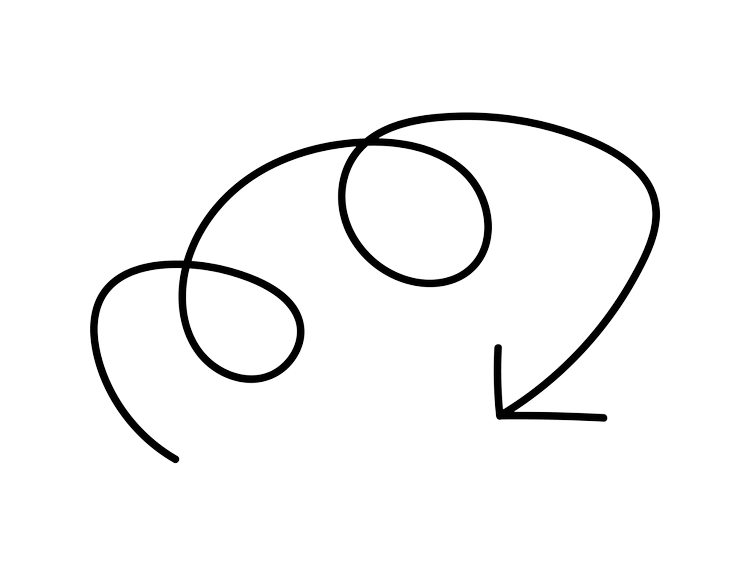What do you get when you ask five AI platforms to crunch some numbers and help solve an investment decision for you?
In the 1990s, we were promised that the internet was going to decentralize wealth and power. How did we end up with what feels like the exact opposite of that?
Bradley assesses the strange predicament of the middle power in a zero-sum world.
Bradley walks through his “Manchurian Economy” thesis—tariffs, intimidation of speech and IP, politicizing the Fed and federal data, choking immigration and R&D, and the broader slide toward rule-of-law instability.
Steve Somers, the beloved Shmoozer on WFAN and author of a new memoir Me Here, You There, joined Bradley and his longtime producer Paul Rosenberg for a live conversation late last year at P&T Knitwear
What will trigger the fiercest backlash to the AI boom? Rather than job losses or generative-AI weirdness, says Bradley, it'll be data centers and their insatiable appetite for electricity.
For the first episode of 2026, Bradley explores the hard choices that lead to contentment over the long run, resisting the dopamine loop of money and status in favor of purpose, perspective and love.
Buckle up for this super-sized episode as Bradley and Alex take on abundance v. zero-sum thinking, the limits of capitalism, the purpose of religion, where higher education is heading (off a cliff, of course, but how high?), what roles AI can never take away from us and why humans are powerless in the presence of babies and dogs.
Daniel Wortel-London, author of The Menace of Prosperity: New York City and the Struggle for Economic Development, 1865–1981, joins Bradley to unpack a century of economic policy, arguing that elites have often undermined cities even as they claimed to save them—and that smarter, more inclusive development is still possible.
For Bradley, it was Blob: A Love Story by Maggie Su.
Drawing on the months of reporting he did for The New Yorker, Staff Writer Eric Lach walks through how Mamdani’s campaign rewrote the playbook on field organizing, social media, and “politics you can see” in the streets — rather than the "politics you can't see" in back rooms.
Bradley makes 12 bold predictions about next year, focusing on the tidal wave of AI regulation hitting state legislatures, why electricity prices will soar and put incumbents in a major bind, the inevitable mishandling of mental-health chatbots, how all the politicians rushing to copy Mamdani's short-form videos are going to create one hell of a blooper reel, and much more.
Bradley walks through the changing VC landscape, using his own fund history as Exhibit A, and going into detail on his return to an “equity for services” model.
Governor Kathy Hochul’s real edge isn’t charisma or disruption, says Bradley, but a deeply “regular” superpower - backing things like universal school meals, subway security, phone bans in schools, childcare tax credits, and a crackdown on shoplifting simply because normal people want them.
Bradley talks to Oliver Libby — venture investor, civic reform advocate, and co-founder of The Resolution Project — about his new book Strong Floor, No Ceiling: Building a New Foundation for the American Dream.
While the Mobile Voting Project posted its open-source code to GitHub, where it is available for any jurisdiction to use, the New York Times ran a front-page, above-the-fold story on Anchorage utilizing it for elections next spring.
We've grown numb to politicians gaming out everything. But when Senate Democrats chose to end the shutdown, says Bradley, they chose the concerns of real people over political opportunism, and Chuck Schumer deserves credit.
Bradley walks us through his first-ever magazine for Substack: six articles where he analyzes the future Mamdani administration and what comes next for New York City.
Bonus Episode with Rev. Al Sharpton and Jonathan Mahler
Not until Democrats finally stop performing politics, says Bradley, will they be able to beat Trump.
What goes together better than smoked fish and good books? Russ & Daughters, beloved for its lox, herring, bagels and babka, is not only one of the truly great and iconic New York food institutions, it's also a neighbor of P&T Knitwear, Bradley's bookstore on the Lower East Side
Bradley gets a Windy City on-the-ground report from friend and colleague Bob Greenlee, which leads to a bleak read on national politics: even if Democrats gain in 2026, the realities of executive power and a thin bench mean that little changes.
The upside of being your own boss is pretty clear, says Bradley, it's your tolerance for the downside that really is the deciding factor.
Jonathan Mahler’s The Gods of New York is a brilliant chronicle of the late 1980s, when a rotating cast of outrageous characters — Trump, Koch, Sharpton, among others — hogged the headlines. Bradley talks to Mahler about the clash of epic egos, as well as shifting social conditions.
Recorded in front of a live audience on July 7, Frank Carone, the renowned lawyer, business negotiator, political fixer and former chief of staff for Mayor Eric Adams, speaks with Bradley about his new book Everyone Wins!: The Ultimate Guide to Optimize Your Business Relationships and Achieve Financial Freedom. From the streets of Canarsie to the corridors of City Hall, Carone shares the life principles, strategic mindset, and relationship playbook that helped him master the art of influence — and how you can use “tactical empathy” to win in business and life.
Today marks the release of Bradley’s TED Talk on Mobile Voting, so you should really head over there and spend 11 minutes getting inspired about the future of democracy (and share the link with your friends if you're on board). This is a short-and-sweet episode with what Bradley learned from doing TED, how to think about your kids entering a job market distorted by AI and why Superman ranks so low on Bradley’s list of favorite superheroes.
It’s hard to imagine anything less glamorous than government procurement, but that’s exactly why August Chen was drawn to it. The CEO and co-founder of Hazel talks to Bradley about the power of AI to modernize the purchase of billions upon billions of goods and services every year. Chen, who cut his teeth at Palantir, explains why legacy systems are so resistant to change, how Hazel earns trust, and what most people get wrong about working with government.
Returning from his recent trip to Estonia, Bradley pushes back on the idea that Americans are hopelessly divided. On core issues like immigration, taxes, housing, and foreign policy, he argues, there’s actually surprising consensus. In this episode, he breaks down where that agreement lies. Plus: big wins for Solving Hunger at the state level, why Elon Musk’s $300 million won’t go nearly far enough in starting in a serious political party, and a fresh look at Cicero — does his philosophy of the good life still hold up?
Mike Pesca, host of The Gist, matches wits with Bradley on a wide range topics: the best sporting events to see in person, the most admirable world leaders of the 21st century, what its like not to feel stress, why America is fine with the Ivy League being destroyed, are sociopaths happier than the rest of us, who still believes that Lee Harvey Oswald acted alone, the pros and (mostly) cons of mushy food, plus much more.





















